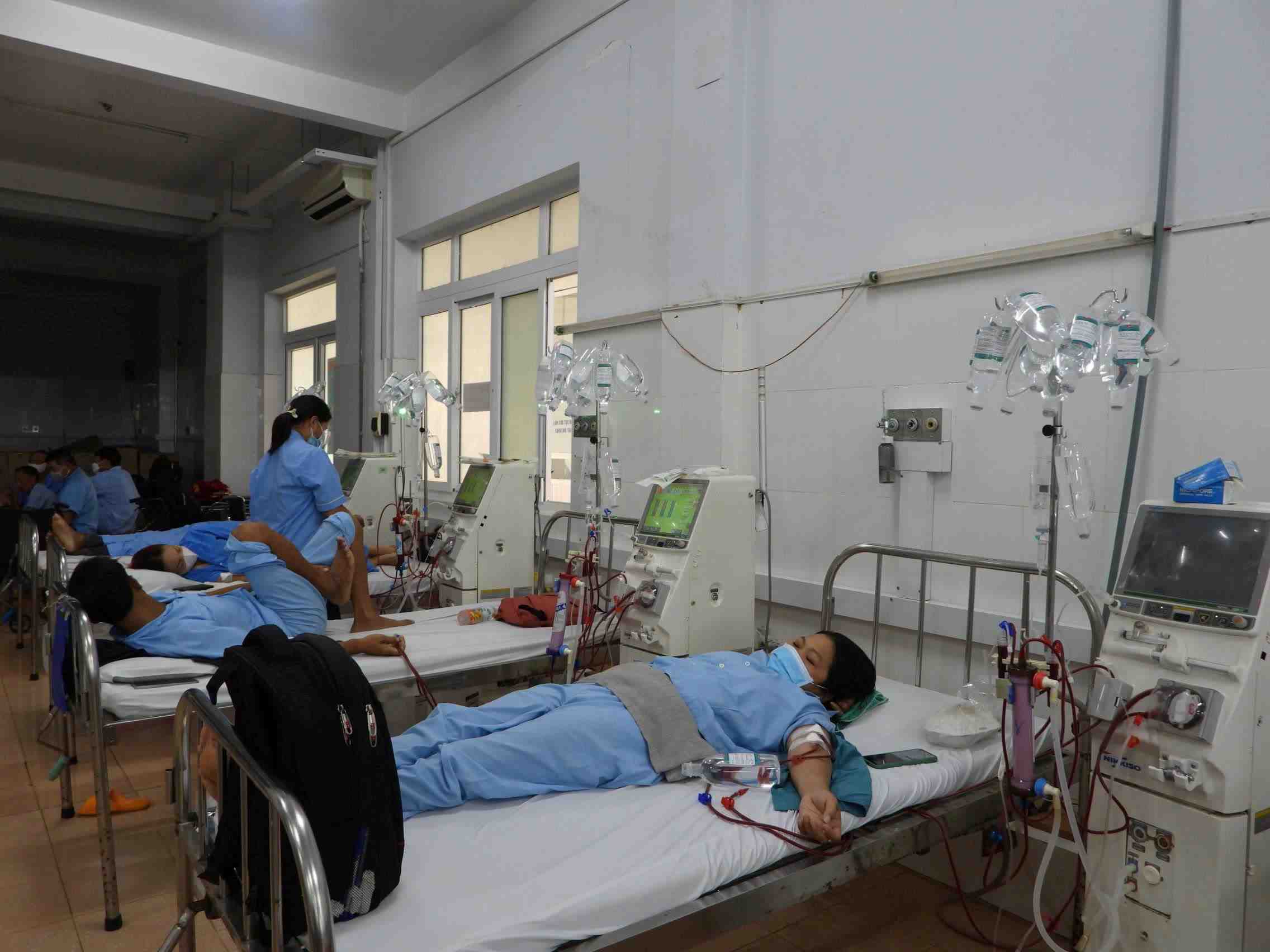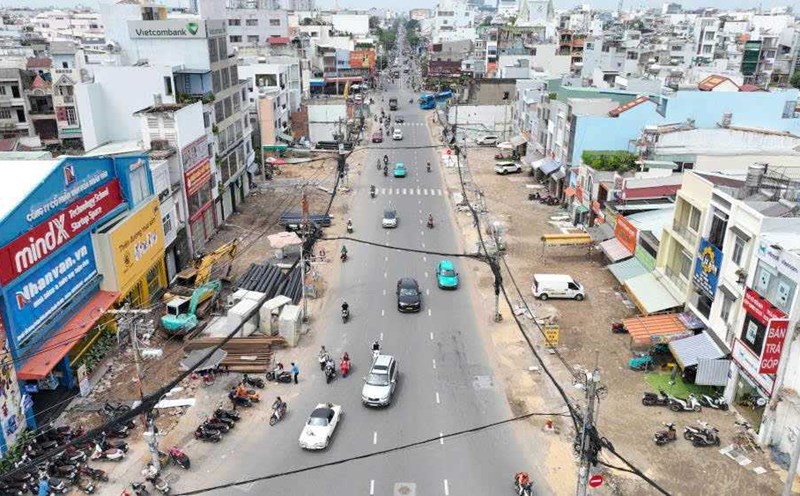Lack of facilities
Chronic kidney disease has many stages, each stage requires different treatments. Originating from a large demand, hospitals across the country are always lacking dialysis machines to serve patients.
Doctor CKII Huynh Thi Doan Dung - Deputy Head of the Department of Intensive Care and Anti-Poison (Cestern Highlands General Hospital) said that the unit currently only has 24 artificial kidney machines. Most of them are operating at full capacity, with machines running 5 shifts per day. "Many machines have reached the liquidation period and need to be replaced, but because the hospital is still having difficulties and the number of patients is too large, we still have to try to repair them to continue treatment," Dr. Doan Dung shared.
According to Dr. Nguyen Ngoc Thinh - Deputy Director of the Central Highlands General Hospital, there are currently facilities in Dak Lak for treating chronic kidney disease including: Buon Ma Thuot General Hospital, Central Highlands General Hospital, Buon Ho General Hospital and Thien Hanh General Hospital. However, it is still not enough to meet the need for dialysis. Many patients are forced to go to Ho Chi Minh City and Hanoi... to have the opportunity for cyclical dialysis. Similar difficulties are also occurring in Khanh Hoa as the number of chronic kidney patients is increasing.
Dr. Nguyen Luong Ky - Deputy Director of Khanh Hoa General Hospital - admitted that the unit is currently facing a serious shortage and overload of facilities.
The patient had to wait for many running sessions, some of which took place from 1-2 am the next morning, seriously affecting the quality of treatment and psychology.

Facing the risk of infection and work pressure
Doctor Vo Khoi Vu - working at the Department of Intensive Care and Anti-Poison and the Department of Nephrology (Khanh Hoa General Hospital) - shared that medical staff at the unit have to work until late at night, without holidays, under great work pressure and psychological pressure. The working environment is always tense due to the characteristics of having to be treated continuously and often coming into contact with chronic patients.
The risk of infection with diseases such as viral hepatitis B, C, HIV for doctors and technicians is always present, because they are often exposed to blood, needles, blood, blood, etc.
As for patients, they have to live with an un treatable disease, carrying a long burden of treatment costs. Many people fall into a sluggish mentality, affecting the effectiveness of treatment.
Currently, there is no strategy for screening and early detection of chronic kidney disease. Most patients are only admitted to the hospital when they are in the final stage, needing immediate blood filtration, causing them no longer to have the opportunity for early conservative intervention and treatment costs are increasingly expensive.
Khanh Hoa and Dak Lak are leading localities in the treatment of chronic kidney disease. However, due to the overload situation, the medical team here hopes that local and central authorities will pay attention to investing, purchasing, and replacing old dialysis machines, helping to improve treatment effectiveness for patients.
Proposal to add more dialysis machines to save patients
People in the border area of Lam Dong province are facing a serious shortage of kidney- running machines. Therefore, many patients have to wait, travel far, and risk their lives.
Faced with this reality, Mr. Nguyen Dang Trung, Director of Dak Mil Medical Center, has recommended that superiors add 10 dialysis machines to promptly treat and reduce the suffering of patients.
Mr. Nay Phi La - Director of the Dak Lak Provincial Department of Health - said that in response to the increasing demand for treatment of chronic kidney disease, the Department has coordinated with the Provincial Department of Finance to report to the Provincial People's Committee on requesting support for funding to invest in blood and artificial kidney blood transfusion equipment.
Up to now, the Dak Lak Provincial People's Committee has sent a document to the Ministry of Finance, the Ministry of Health, the National Assembly Ethnic Council... requesting support from urgent reserve funding in the Government's 2024-2025 plan to invest in the Center for Hematology of Blood Transfusion and artificial kidney units, with a total cost of more than 85 billion VND.
"In which, the province will purchase a system of electro- room temperature immunotherapy testing machines, a chip separator and an automatic Real-Time PCR machine; equip 50 more artificial kidney machines, 1 RO system and develop 4 units of artificial kidneys in 4 directions of the province", said Mr. Nay Phi La.








